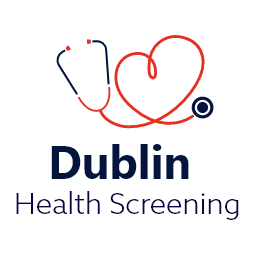Why have it checked?
High blood pressure (hypertension) affects nearly one in five Irish people. It is more common in older age groups but it can affect younger people too. You will likely feel no symptoms even if your pressure is quite high, so by the time you feel unwell some damage may have been done. So it is important to have your blood pressure checked regularly, as part of your “Cardiovascular Risk Assessment”.
Why is high blood pressure a problem?
Persistent high blood pressure can cause the heart to enlarge and weaken. It also damages the blood vessels, especially if you also have raised blood cholesterol or diabetes, or if you smoke. If blood vessels become narrowed or blocked, a heart attack or stroke may occur. High blood pressure is also linked to kidney and eye damage and poor circulation in the arteries of the legs.
How is blood pressure measured?
As the heart pumps, it creates pressure inside the blood vessels and moves the blood forward. This is called the systolic pressure. The heart then relaxes while it fills again and the pressure falls. This is called the diastolic pressure. The pressure is measured in millimetres of mercury (mmHg). An ideal blood pressure is often quoted as being about 130 mmHg (systolic pressure) over 80 mmHg (diastolic pressure), or 130/80, but this should be an upper limit for some (eg, people with diabetes).
What is high blood pressure?
High blood pressure means that the systolic or diastolic pressure, or both, are consistently above the range your doctor thinks is healthy for you.
Blood pressure tends to increase with age, however, so a pressure that may be average for a person of 60 or 70 years would be high for someone in their 20s. Blood pressure also rises at certain times, such as when we exercise or get excited, angry or frightened, but it usually quickly returns to normal.
When deciding whether your blood pressure reading is of concern or not, your doctor will take various factors into account. He or she will also check your pressure on more than one occasion to make sure any rise is persistent.
Should I get my blood pressure checked?
Every adult should have their blood pressure checked regularly. Your doctor will advise you how often – it will depend on your age, whether you are taking any medications and your general health. Regular checks are especially important for:
- all men aged over 45 and women over 55 years
- smokers
- those who are overweight
- pregnant women and those taking the oral contraceptive pill
- those with a family history of heart disease.
What causes high blood pressure?
In 95% of people with high blood pressure there is no obvious cause. The remaining 5% generally have a specific cause, such as kidney disease. For those with no obvious cause, it may partly be genetic (it can run in families) or be contributed to by:
- being overweight
- smoking, and perhaps sustained severe stress
- not getting enough physical activity
- too much alcohol (more than three drinks a day)
- eating a lot of salt (or sodium).
What can be done about it?
Achieve and maintain a healthy bodyweight. Being overweight usually means a higher blood pressure. Eat a balanced, low fat diet with grains, eight servings of coloured vegetables and fruit, and two to three servings of low fat milk a day. Choose fish, skinless chicken and lean meat. Avoid fatty, fried food.
Be active regularly. Strive to put a little bit more activity in your day at every opportunity. Aim to accumulate 30 minutes of moderate activity most days of the week. Walking, cycling and swimming are ideal. Find an activity you enjoy so you can keep it up.
Eat less salt. Use herbs, spices, fruit and vinegar for flavouring and dressings and choose low salt preprepared foods, avoid pickled food and avoid excessively salty takeaway foods.
Avoid liquorice – it contains a chemical that can raise blood pressure.
Have no more than two or three alcoholic drinks a day,
Stop smoking quitting reduces your risk of heart attacks or strokes.
Drug treatments
Drugs may help control high blood pressure but they do not cure it. Usually, medication will need to be taken for life. You may need two or more drugs and it may take time to find the right combination and dosage. It is important to let your doctor know about any reactions you have to the drugs, and to follow instructions carefully
